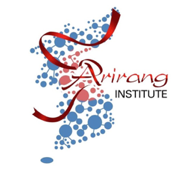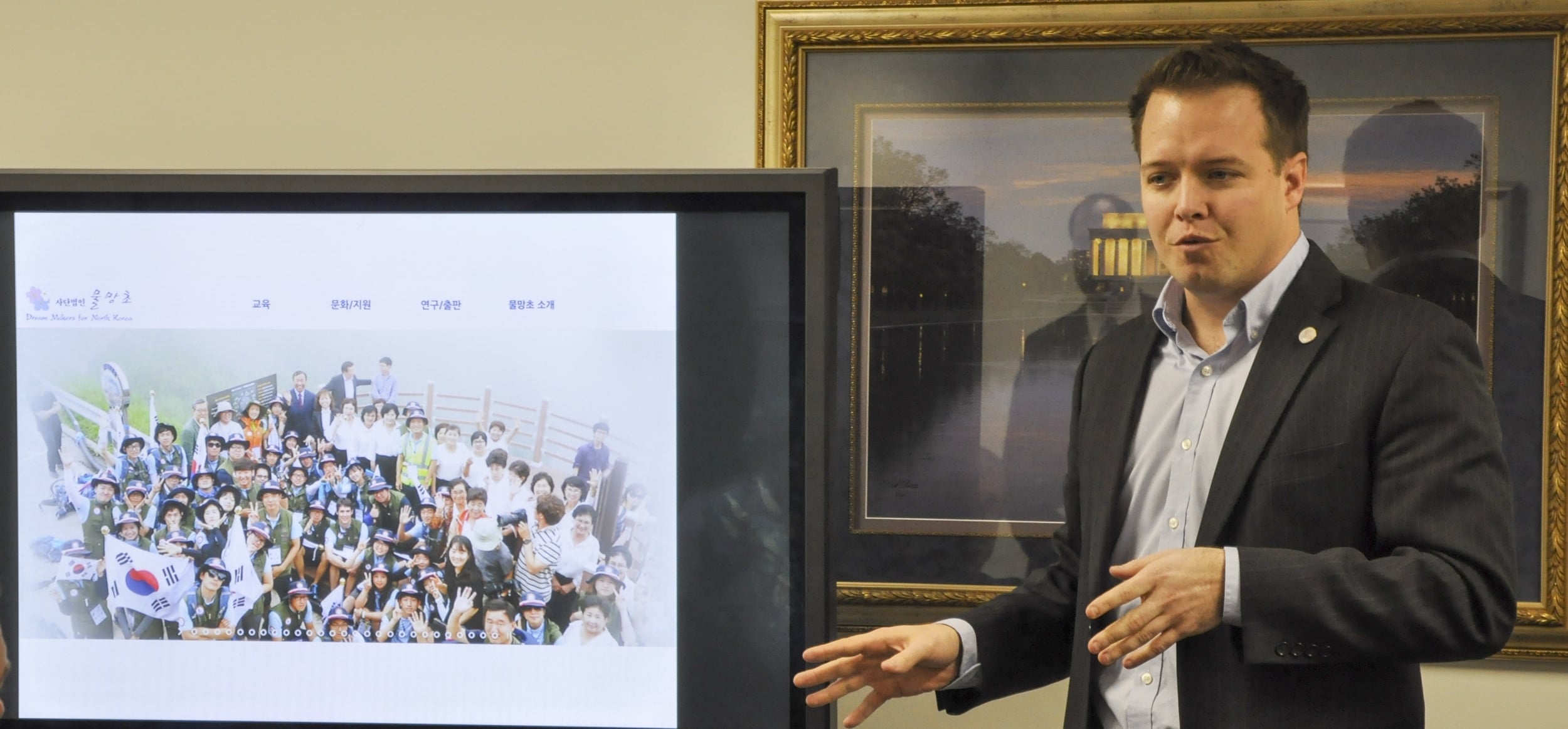On January 11th, 2016 in Washington D.C. the Institute of National Strategic Studies and Arirang Institute held a roundtable discussion, bringing together leading academics, security issues experts, and decision makers aimed at rethinking the question of engagement, reconciliation and unification between North and South Korea and the role of the United States.
The Guest Speaker for the roundtable discussion, Michael Lammbrau, Seoul Bureau Chief of Arirang Institute, spoke about the positive role the United States should embrace in supporting reconciliation and reunification of North and South Korea and how by building a human network of NGO leaders, security experts, community leaders, and students alike now, we can, not only prepare for the future but shape it.
He emphasized the importance of how “People to People” Diplomacy conducted by non governmental organizations and individuals, through culture exchanges, forums for dialogue and discussion can provide the necessary energy to help shape a peaceful and prosperous future unified Korean peninsula. The options available to US policymakers and the international community are few and far between.
There are calls for “Hard Headed Diplomacy” with North Korea, a non starter for the United States without North Korea’s commitment to denuclearization. Then there are those who call on China to apply or pressure North Korea, but there isn’t much China can do. Dr. Katharine Moon, Senior Fellow at The Brookings Institution, wrote, “In my view, the test on January 6 was more of a slap to Beijing’s face than a violent dance to get the attention of Washington.” China does hold considerable economic and political influence with North Korea, but the elites in Pyongyang have proven time and time again their commitment to “independence and sovereignty” at any cost.
North Korea would find other avenues to survive and have proven in the past, the “Arduous March” of the late 1990s, they have the will to do so. Furthermore, despite the tough talk, nobody in East Asia wants a scenario where the North Korean regime collapses. North Korea’s neighbors do not want a humanitarian crisis of fleeing refugees, loose nukes which need to be secured, and the possibility of the US and Chinese military coming face to face. The risk for disaster is far too great.
Finally, keep in mind Seoul is less than 100 miles away from the DMZ. This close proximity although on one hand dangerous also provides an opportunity for exchange, dialogue, and discussion with the North Korean people. There is no quick fix. This will take awhile.
With the recent influx of over the past two decades of 30,000 North Korean refugees living and working in South Korea, the battle for the hearts and minds of the Korean peninsula is not in North Korea but in South Korea. South Korea is where the battle of ideas is allowed to freely take place. South Korea is were dialogue, interaction, and exchanges should be pursued. The message, the discourse, whatever it may be, will inevitably be carried back to the people in North Korea.
Professor Dongwon Kang, of Dong-A University in Busan, is well known for his research on the North Korean peoples’ sentiment and views. In his interviews and surveys he has documented the very real “Korean Wave” phenomenon in North Korea. The battle for the hearts and minds, is a constant, ongoing, everyday grind, which builds to a tipping point in culture and politics. Ask anyone who lived through the Soviet Union, western music, styles, Levi’s Blue Jeans were driving force towards the implementation of ‘Glasnost’, fall of the Berlin Wall, and the eventual end to the Cold War.
Arirang Institute is in the field, on the ground, creating opportunities for dialogue and discussion on the Korean peninsula. This spring they look to launch not only a Diplomacy Football Team, comprised of International and Korean players, as part of their “People to People” platform, but also a Leadership Programme which connects students in South Korea with East Asian experts and academics in the United States.
Mr. Lammbrau concluded his remarks stating,
“We fully support North-South Korea taking the lead on Inter Korean relations, independently negotiating and brokering initiatives of cooperation, collaboration, and exchange, in hopes the interaction will lead to trust and eventual unification of the Korean Peninsula.”
Within weeks the 4th Nuclear Test by North Korea will be forgotten by the media, the International Community will come together to pursue an appropriate punishment (more sanctions) and the status quo will continue on. The Korean War, although without conclusion, is better than war, and thus the preference for the status quo. But perhaps in the not so distant future, it will be the hard work of non governmental organizations, private individuals, and communities, media and entertainment, not high level diplomats and politicians, which will provide the tipping point for a Korean “Glasnost” and an end to the Korean War.






